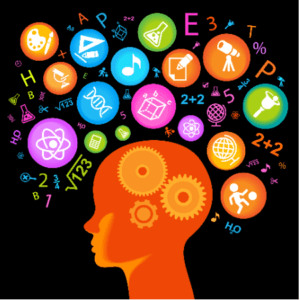Train Your Brain To Learn Faster and Remember More
This is a write-up of a recent Lifehack article by Maria Brilacki entitled “8 Ways to Train Your Brain to Learn Faster and Remember More”.

Social goals of brain training
By training your brain and improving your cognitive skills, along with your short and long term memory, you will accomplish the following:
- Avoid embarrassing situations. You remember the face, but what was the name?
- Be a faster learner in all sorts of different skills. It will be no problem for you to pick up a new language or new management skill.
- Avoid diseases that hit as you get older. Think of dementia and Alzheimer’s.
You go to the gym to train your muscles. You run outside or go for hikes to train your endurance. Or, maybe you do neither of those, but still wish you exercised more. You spend so much time focusing on improving your body; shouldn’t you also focus on learning how to train your brain?
Work Your Memory
This is what NYC-based renowned choreographer Twyla Tharp does as a memory workout: When she watches one of her performances, she tries to remember the first twelve to fourteen corrections she wants to discuss with her cast without writing them down. This is not so easy to do! Twyla says that most people cannot remember more than three.
Memory activities that engage all levels of brain operation—receiving, remembering and thinking—help to improve the function of the brain.
Repetition is the simplest way to help yourself remember what you see.
Improve The Way You Do Things
Find a new way of doing familiar things
By actually doing something over and over again, your brain wires new pathways that help you do this thing better and faster by improving specific cognitive functions.
Say you are a procrastinator. The more you don’t procrastinate, the more you teach your brain not to wait until the last minute to make things happen. It is a matter of cultivating more and better neural pathways to do things (thus avoiding procrastination altogether).
By doing something really small but streamlining the decision-making process, thus getting that task done effortlessly, you will start creating those new precious neural pathways. Cleaning your desk, for instance. If you have been postponing organizing your desk, just take one paper and put in its right place. Look at one piece of paper and decide where to put it: Trash? Right cabinet? Another room? Give it to someone? You don’t actually need to clean up that paper; you only need to decide what to do with it in order to train your brain. You will transform yourself into an in-the-moment action-taker.
Learn Something New
The more you use your brain, the better it’s going to perform for you.
For example, learning a new instrument improves your skill of translating sheet music (something you see), to playing the instrument (something you actually do).
Learning a new language exposes your brain to a different way of thinking and a different way of expressing yourself and is good for your brain.
You can even literally take this a step further, and learn how to dance. Research has shown that learning to dance helps seniors avoid Alzheimer’s.
If you want to learn new things more effectively, identify your learning style first. If you don’t know your learning style, take the Full-Life Assessment Quiz in this article. By understanding your own learning style, you can maximize your strengths in learning and learn quicker.
Follow Lifehack’s rain Training Program
The Internet world can help you improve your brain function while sitting on your couch. For example, Lifehack’s free Fast-Track Class, “Spark Your Learning Genius” .
Exercise Improves the Fitness of Your Brain
Indeed, exercise does not just work your body, but it also improves the fitness of your brain.
Even briefly exercising for 20 minutes facilitates information processing and memory functions. Exercise actually helps the brain create those new neural connections faster. Moving your body will make you learn faster and increase your alertness level.
Spend Time With Your Loved Ones
If you want to train your brain and develop optimal cognitive abilities, cultivate meaningful relationships.
Talking with others and engaging with your loved ones helps you think more clearly, and it can also lift your mood.
Avoid Crossword Puzzles
When we think of how to exercise your brain, many of us think of crossword puzzles.
And it’s true—crossword puzzles do improve our fluency, yet studies have offered conflicting views and show they are not enough by themselves if you’re looking to train your brain and prevent disease like Alzheimer’s.
Eat Right—and Make Sure Dark Chocolate Is Included
Foods like fish, fruits, and vegetables help your brain perform optimally in the long term. Yet, you might not know that dark chocolate gives your brain a good boost as well.

The Bottom Line
Now that you know how to train your brain, it’s time to choose one of the above steps and get started.
Improving your ability to learn and remember will take time, and you won’t see results overnight, but will dedicate yourself to a brain training routine, you will absolutely see results. Put this knowledge into action and become smarter than ever!
You are encouraged to try all the suggestions at the end of this Lifehack article, using the links provided in the article. Please let us know how you like any of the suggestions provided. We’d love to hear about your progress!
Other brain games can be found under the heading “See Our Blogs”, by clicking any of the published blogs on the pages for the following categories:
“Brain Games For Children”
“Brain Games For Adults”
“Brain Games For Seniors”
“Advanced Brain Training”
“Optimal Brain Health”


I’m glad I found your article – its always great to learn ways to keep our brains agile, exercise and learning. This is especially important as we age. I had heard about learning languages or right brain activities like music, dancing, cooking and other hobbies but I learned a few new things from your article.
Working your memory makes sense – just like physical exercising.
Finding a new way to do already familiar things is something I hadn’t thought of, so now I’m thinking of ideas for every day life. My work office and home office is a start!
That is so pleasing to read that dark chocolate helps too, one of my favourites. I’m checking out your brain games for adults now. Thank you so much!
Thanks for your comment, John. I’m glad that you like the suggestions in our blog. Please try them and let us know how they work out for you.